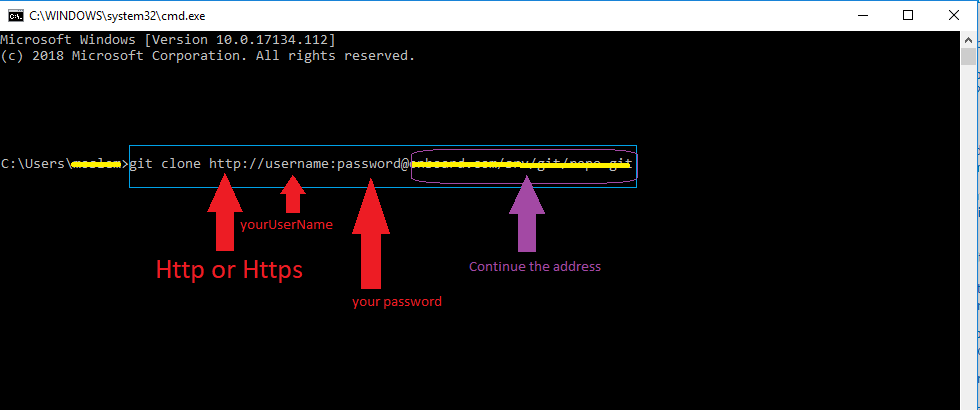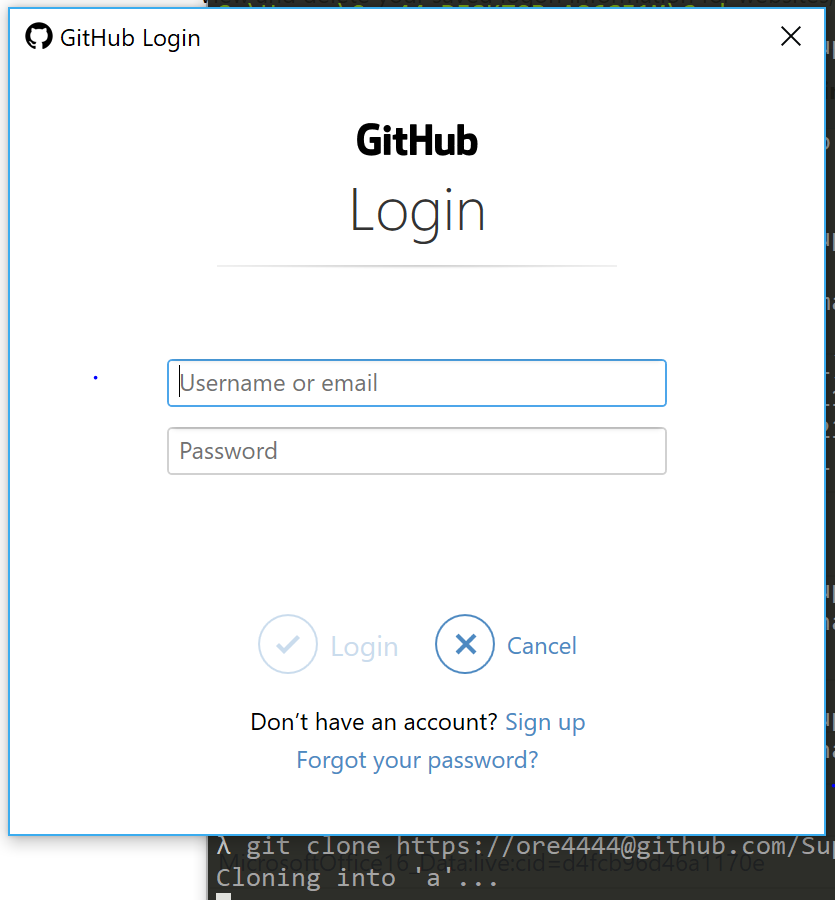The user@host:path/to/repo format tells Git to use ssh to log in to host with username user. From git help clone:
An alternative scp-like syntax may also be used with the ssh protocol:
[user@]host.xz:path/to/repo.git/
The part before the @ is the username, and the authentication method (password, public key, etc.) is determined by ssh, not Git. Git has no way to pass a password to ssh, because ssh might not even use a password depending on the configuration of the remote server.
Use ssh-agent to avoid typing passwords all the time
If you don't want to type your ssh password all the time, the typical solution is to generate a public/private key pair, put the public key in your ~/.ssh/authorized_keys file on the remote server, and load your private key into ssh-agent. Also see Configuring Git over SSH to login once, GitHub's help page on ssh key passphrases, gitolite's ssh documentation, and Heroku's ssh keys documentation.
Choosing between multiple accounts at GitHub (or Heroku or...)
If you have multiple accounts at a place like GitHub or Heroku, you'll have multiple ssh keys (at least one per account). To pick which account you want to log in as, you have to tell ssh which private key to use.
For example, suppose you had two GitHub accounts: foo and bar. Your ssh key for foo is ~/.ssh/foo_github_id and your ssh key for bar is ~/.ssh/bar_github_id. You want to access [email protected]:foo/foo.git with your foo account and [email protected]:bar/bar.git with your bar account. You would add the following to your ~/.ssh/config:
Host gh-foo
Hostname github.com
User git
IdentityFile ~/.ssh/foo_github_id
Host gh-bar
Hostname github.com
User git
IdentityFile ~/.ssh/bar_github_id
You would then clone the two repositories as follows:
git clone gh-foo:foo/foo.git # logs in with account foo
git clone gh-bar:bar/bar.git # logs in with account bar
Avoiding ssh altogether
Some services provide HTTP access as an alternative to ssh:
warning: Adding your password to the clone URL will cause Git to store your plaintext password in .git/config. To securely store your password when using HTTP, use a credential helper. For example:
git config --global credential.helper cache
git config --global credential.https://github.com.username foo
git clone https://github.com/foo/repository.git
The above will cause Git to ask for your password once every 15 minutes (by default). See git help credentials for details.


